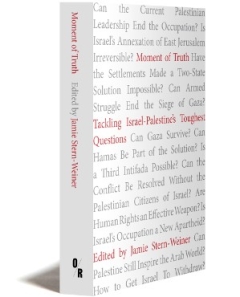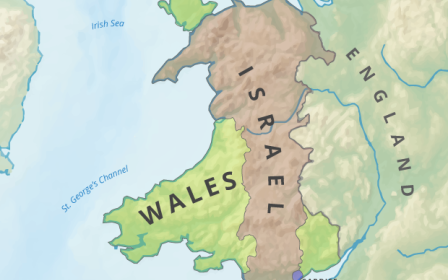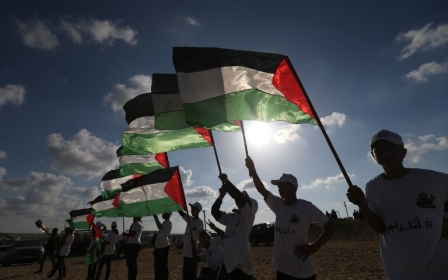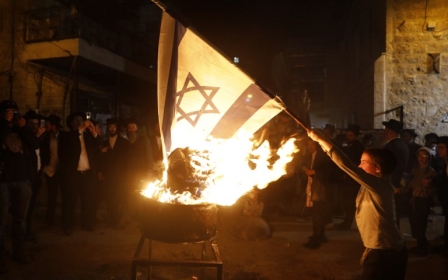Moment of Truth: Exploring key questions on Israel and Palestine
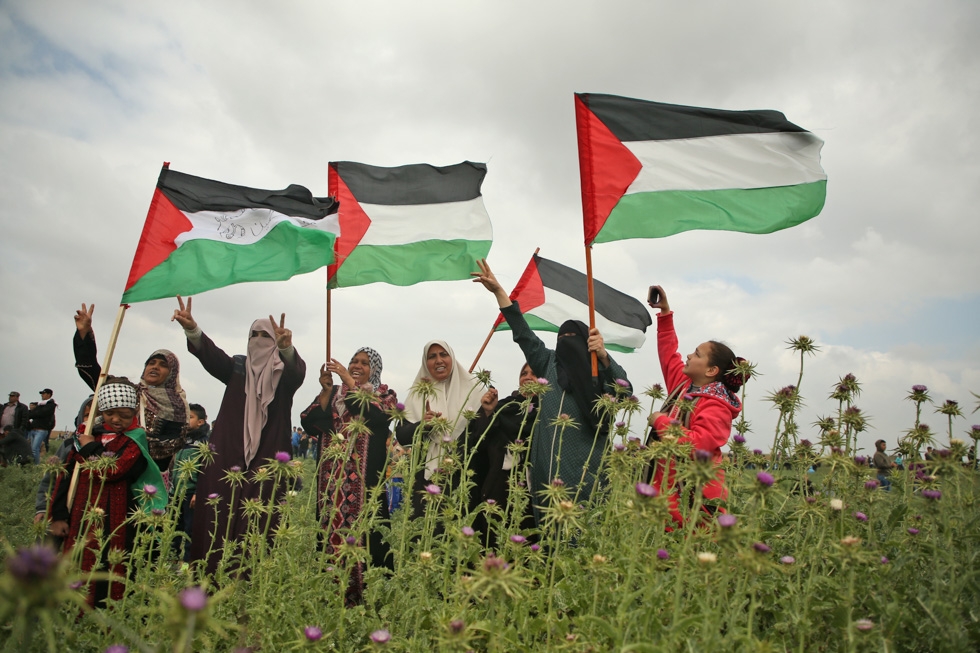
How does one consider 70 years of conflict that countless UN resolutions, global power brokers and peace activists have been unable to resolve? Through a weighty compilation of analysis from some of the most prominent and informed voices on the issue.
Upon the Nakba's 70th anniversary, such a considered analysis of Israel and Palestine is quite frankly overdue. That’s what Moment of Truth: Tackling Israel-Palestine's Toughest Questions, a book edited by Jamie Stern-Weiner and published by OR Books, aims to provide.
With more than 50 contributors, including such distinguished voices as Richard Falk, Norman Finkelstein and Gideon Levy, among many others, the book lays out some of the toughest questions on the conflict and considers the facts on the ground.
Thought-provoking vigour
Stern-Weiner divides the book into three sections: the question of Palestine and the realities of what is happening in the West Bank and Gaza; strategies for resolving the conflict; and the role of international players. Part I is approached with the most creative and thought-provoking vigour.
Can the current Palestinian leadership and its institutions end the occupation? Is Israel's annexation of East Jerusalem irreversible, and have the settlements made the two-state solution impossible? These are the questions causing frustration and furore as new world leaders tackle them with zero sensitivity.
US President Donald Trump's recognition of Jerusalem as Israel’s capital caused outrage and resulted in starker odds for a just solution, as he failed to consider the very precarious role that East Jerusalem would play in a final peace deal. The chapters in Part I present some hard truths to account for the failure of a successful outcome for the Palestinians.
Analysts attribute it largely to internal dilemmas - namely, stagnant political structures formed by the Palestine Liberation Organisation and the Palestinian Authority, which in their pursuit of statehood, are perpetuating the conditions for occupation instead of having a vision to turn aspiration into reality.
In the first chapter, Nathan J Brown writes: "While the state-builders seemed to have the upper hand in the 1990s, the last 17 years have been cruel to their project. The national structures that were supposed to lead to revolution and then to statehood have decayed deeply under the powerful blows of uprising, division, occupation, Israeli settlements, and international abandonment. The institutions themselves march on, but they have lost most of their vitality and all sense of strategic vision."
Many of the authors in the book believe that the old ways of pursuing political goals for Palestine won’t happen through these antiquated political structures. A newer generation of Palestinians are looking for methods of more direct action.
This strategy is discussed more fully in Part II. Although viewpoints are diverse, most contributors agree that the Boycott, Divestment and Sanctions (BDS) movement is the most promising strategy for trying to stop the occupation.
A regional perspective
What the book doesn't take on, however, are efforts to quash the BDS movement by Israel and its international allies. In fact, discussion about the international community's part in the Israel-Palestine conflict is largely missing, even in Part III, which is dedicated to the "international" angle.
This part does include fascinating chapters on the regional perspective of the Arab world, along with an insightful discussion on the lessons learned from former US president Jimmy Carter’s diplomacy, led by Finkelstein. By way of summarising how best to encourage effective US diplomacy, he writes: "In general, the amount of force a US administration will bring to bear on Israel is the resultant of two vectors: (1) How vital is the US interest at stake, and (2) How legitimate is Israel’s demurral, for that will determine how effective a public campaign the administration can mount in the face of the lobby’s opposition."
This is essential reading for the political class - one as bereft of answers in the West as it is in Palestine
However, considering that the Israel-Palestine problem was internationalised from inception, the "toughest" perspective could have taken in the international community’s contribution to the resolution process and the failure of that process.
Those aspects are dealt with fleetingly, and mostly with regard to Jerusalem solely, as are "tough" questions around the Israel lobby. There's also no discussion about Israel’s profiteering from the occupation or the US military-industrial complex that benefits from Israel’s immense defence capabilities.
The book is gargantuan, as are the dimensions of the conflict, so the editor can’t take on everything, but what the book does present is pertinent and illuminating.
Origins of the conflict
However, the questions above are perhaps more pressing than the role that human rights organisations have to play in ending the occupation, covered in Part II. As a human rights activist for most of my life, I found parts of this chapter fairly depressing, including the suggestion that documenting human rights abuses may in fact be futile when you’re trying to come to a political agreement.
This highlighted the fact that focusing on human rights abuses can actually be the barrier to, rather than the means for, a solution. While this was quite frankly a good reality check and raised a number of more nuanced points on the best way such organisations should perform their role, I felt the chapter could have been replaced with at least one on Israel’s entanglement with US capital interests, however contentious that might be.
The book’s structure is mostly framed as a series of questions for debate, with one dominant essay plus a series of responses. There are pros and cons to this approach - on the downside, there’s much to-ing and fro-ing, and because many of the authors are seemingly writing their contributions in silos, there is some repetition. But that’s not necessarily a bad thing.
Many of the authors discuss the events around 1948, and with the 70th anniversary of the Nakba being marked this year, it brings home the point that anyone reflecting on Palestine today must consider its history and the origins of the conflict.
Essential reading
While the book could not deal with all of the questions I had, this tempered version has immense use.
Part I is essential reading for the political class - one as bereft of answers in the West as it is in Palestine. In particular, detailed consideration of the facts on the ground in the West Bank, Gaza and East Jerusalem should remind them of the current realities, and Part II should make them question current approaches.
For instance, progress cannot be achieved just by throwing donor money at the occupied territories. And for those trying to understand what a future strategy for Palestine should look like, parts II and III cast light on the successes and failures of past and recent efforts.
But even for novices whose understanding of the conflict is minimal, Moment of Truth is a book that instantly informs and leaves a trail to follow to learn more. It will make you question your own viewpoints and consider stances of idealism versus pragmatism. There just needs to be a second edition.
Moment of Truth: Tackling Israel-Palestine's Toughest Questions is now available from OR Books
- Sophia Akram is a researcher and communications professional with a special interest in human rights, particularly across the Middle East and Asia.
The views expressed in this article belong to the author and do not necessarily reflect the editorial policy of Middle East Eye.
Photo: Palestinian women wave Palestinian flags during a protest in the Gaza Strip commemorating Land Day on 30 March 2018 (AFP)
New MEE newsletter: Jerusalem Dispatch
Sign up to get the latest insights and analysis on Israel-Palestine, alongside Turkey Unpacked and other MEE newsletters
Middle East Eye delivers independent and unrivalled coverage and analysis of the Middle East, North Africa and beyond. To learn more about republishing this content and the associated fees, please fill out this form. More about MEE can be found here.



